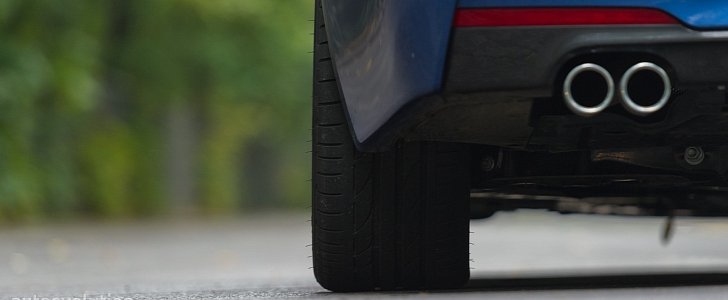The push for diesel-powered cars over the last two decades in Europe is starting to backfire, with levels of dangerous cancer-causing nitrogen oxides in the air around major cities reaching worrying heights.
The modern diesel engine was touted as a cure for global warming, burning less fuel than a gasoline counterpart and emitting less carbon dioxide into the atmosphere. The authorities bought the story, the carmakers invested in developing the technology and the consumers were all too happy with their high mpg vehicles that also didn't harm the environment. But they mostly cared about lower fuel costs, to be honest.
In recent years, however, it has become apparent that diesel engines are not clean at all. While they may indeed have lower CO2 emissions, their tailpipes also spew other particles into the air which have a much more severe immediate impact on our health.
Some countries didn't embrace the diesel revolution wholeheartedly, even a few European ones, but most of them did. And now we have a series of big cities taking drastic measures against the oil burners, with names like Paris, Madrid, and even Stuttgart coming to mind.
It would seem Munich, the Bavarian capital and home of BMW, will be the latest A-lister to join the group. Renowned for its Englische Garten park and bohemian atmosphere, the city's renown as a green oasis is now being tarnished by a government study.
The research discovered hazardous pollution levels in the city's air, prompting a proposal to ban cars using older diesel engines. Buses, taxis, and diesel engines that comply with Euro 6 emission standards would be exempt, Automotive News says.
Ever since the Volkswagen emissions scandal, diesel sales have begun dwindling, but one car in two sold in Europe still uses this type of engine. However, manufacturers have expressed their intention to offer a more varied range of non-diesel powertrains, with some even vowing not to build any of them anymore (like Volvo, for example).
The obvious alternative would be a gasoline hybrid system which has similar carbon dioxide emission levels to a diesel engine while also providing the same low-rev torque that made them a favorite among some drivers. However, hybrid vehicles usually command a premium over traditionally powered ones, so the authorities might have to offer incentives for the switch to happen sooner.
In recent years, however, it has become apparent that diesel engines are not clean at all. While they may indeed have lower CO2 emissions, their tailpipes also spew other particles into the air which have a much more severe immediate impact on our health.
Some countries didn't embrace the diesel revolution wholeheartedly, even a few European ones, but most of them did. And now we have a series of big cities taking drastic measures against the oil burners, with names like Paris, Madrid, and even Stuttgart coming to mind.
It would seem Munich, the Bavarian capital and home of BMW, will be the latest A-lister to join the group. Renowned for its Englische Garten park and bohemian atmosphere, the city's renown as a green oasis is now being tarnished by a government study.
The research discovered hazardous pollution levels in the city's air, prompting a proposal to ban cars using older diesel engines. Buses, taxis, and diesel engines that comply with Euro 6 emission standards would be exempt, Automotive News says.
Ever since the Volkswagen emissions scandal, diesel sales have begun dwindling, but one car in two sold in Europe still uses this type of engine. However, manufacturers have expressed their intention to offer a more varied range of non-diesel powertrains, with some even vowing not to build any of them anymore (like Volvo, for example).
The obvious alternative would be a gasoline hybrid system which has similar carbon dioxide emission levels to a diesel engine while also providing the same low-rev torque that made them a favorite among some drivers. However, hybrid vehicles usually command a premium over traditionally powered ones, so the authorities might have to offer incentives for the switch to happen sooner.

